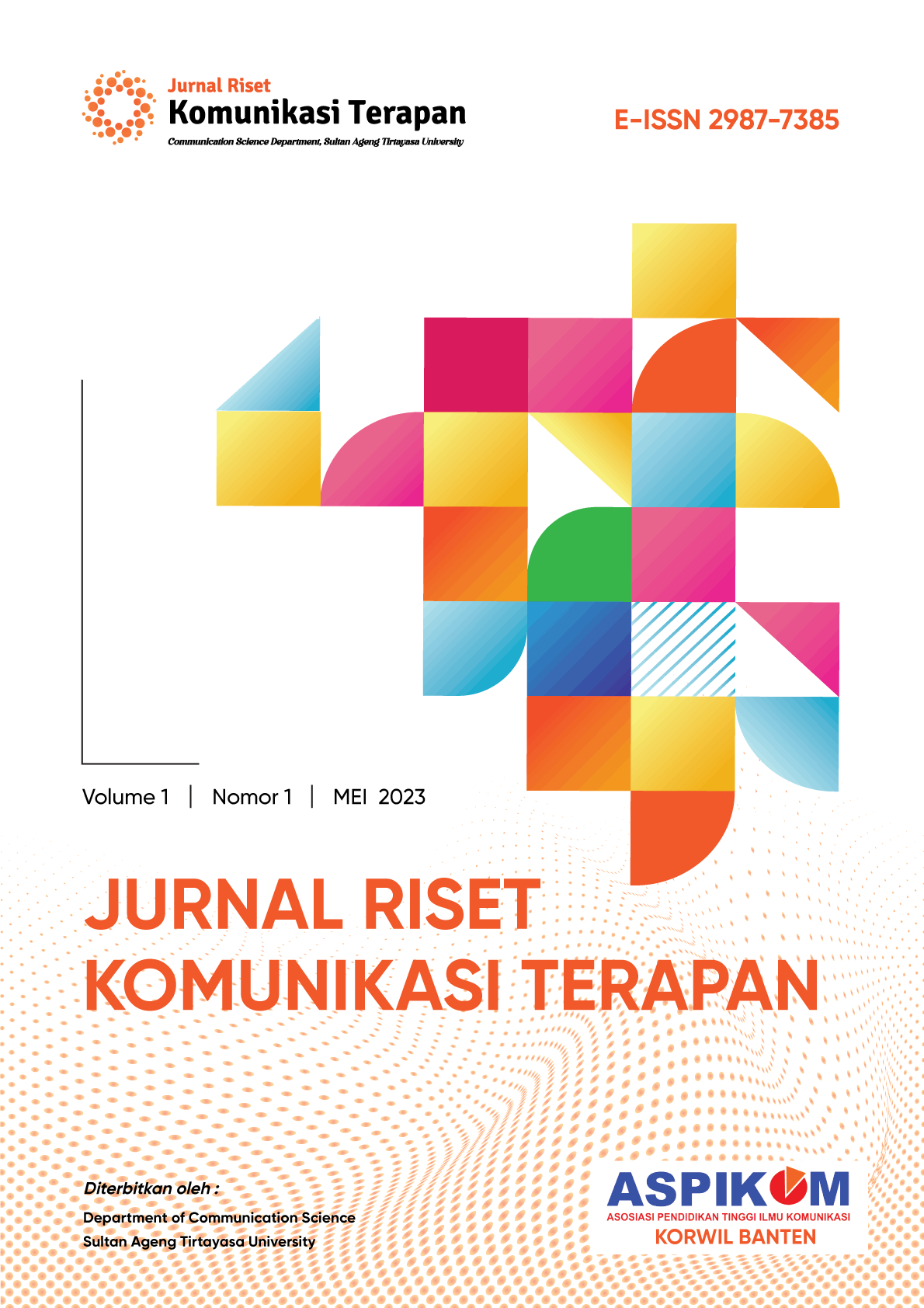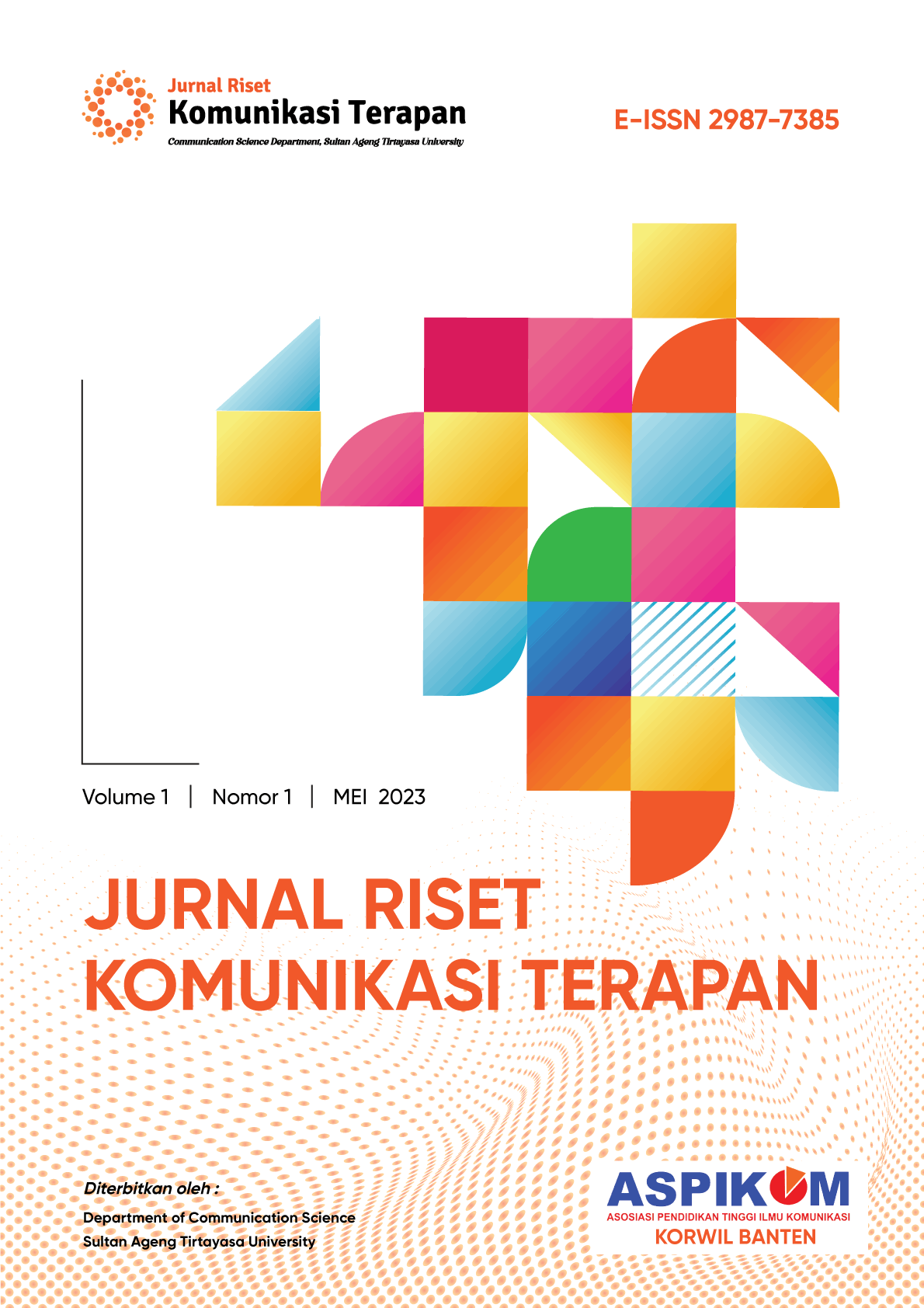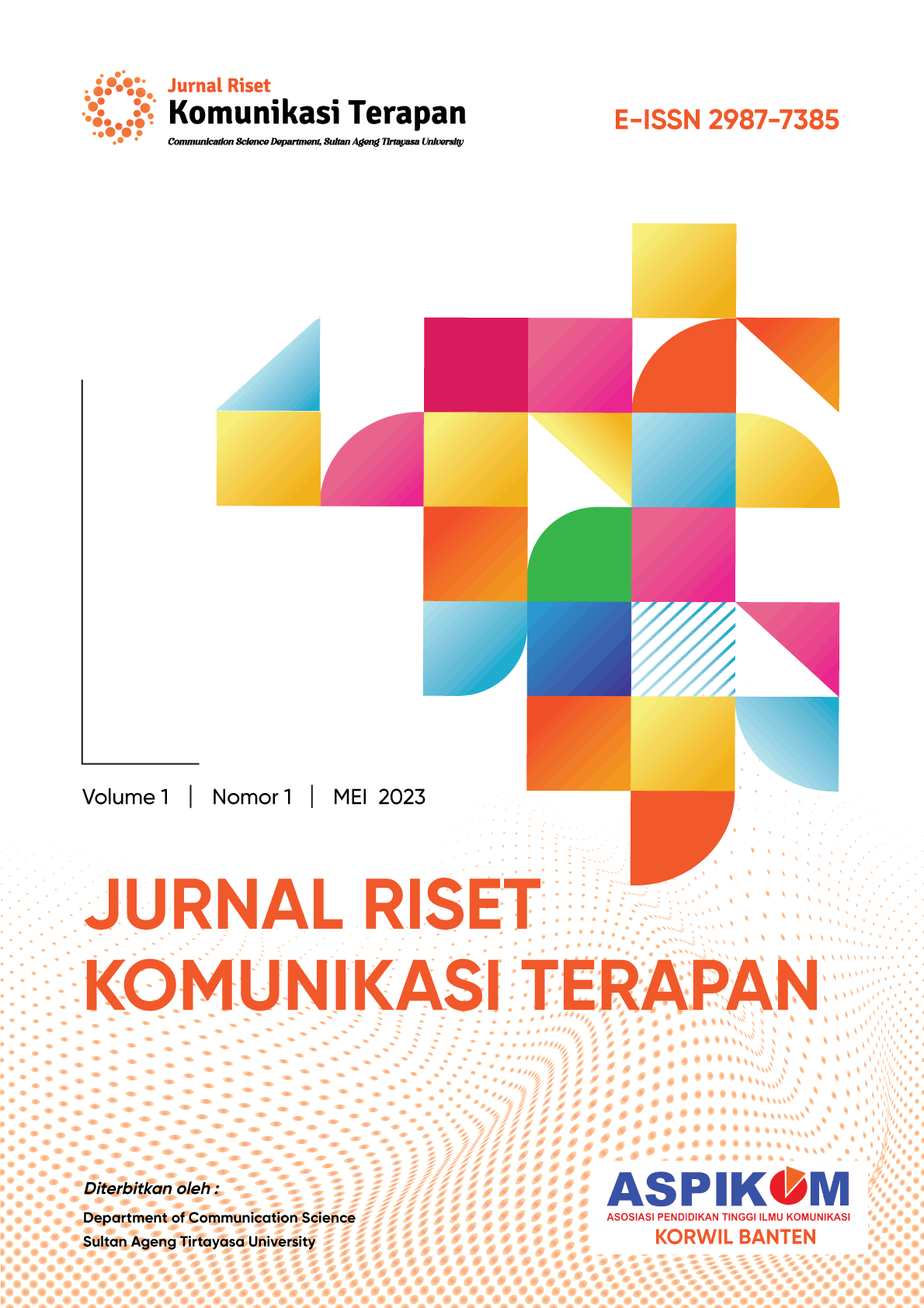Focus and Scope
JRKT (Jurnal Riset Komunikasi Terapan) is published by Department of Communication Science, Faculty of Social and Political Science, Sultan Ageng Tirtayasa University. JRKT (Jurnal Riset Komunikasi Terapan) contains articles derived from research in the field of Communication studies as its focus with a mission to encourage academics and students in developing communication practices and theories in Indonesia and is published twice a year (May and December).
Article will be reviewed with double-blind peer review. JRKT (Jurnal Riset Komunikasi Terapan) will publish selected paper under a Creative Commons Attribution ShareAlike 4.0 International License Topics within the journal include but not limited to:
1. Political communication We seek for research papers related to any practice of political communication which focuses on either the politicians, political parties, political messages, the effects of political campaigns on the audience. Relevant research papers on the issues of political campaign, political advertising, and propaganda are also welcomed.
2. Media, popular culture and gender. We are interested in academic papers on various issues on the media-made cultural practices, such as television and internet fandoms, internet celebrity, internet memes, audience on films and TV dramas, sitcoms and reality shows, and selfie cultures. We encourage studies on the intersections of media and gender, which includes news portrayals of women, media representation on LGBT community, the role of gender in media organizations, or feminists’ perspective on media practices in general.
3. Business, organisational and marketing communication. Research findings on development of marketing, business, organisational and the growth of social media are welcomed.
4. Cross-cultural communication With the increasing global interaction, we understood the necessity of studies related to cross-cultural communication, such as research on communication between people who came from different ethnicity, religion, native languages, etc. Cross comparison studies on the communicative practice of people from various cultural background are also welcomed.
5. Health communication Papers on health communication sub-field, such as health campaigns, the organizational strategy on disseminating messages related to health issue to the public, audiences’ perception on health-related media campaigns, and how media organizations cover health topics are strongly encouraged.
6. Environmental communication We also welcome research papers on the topic of environmental communication, which may include (but not limited to) campaigning strategies on waste reduction, food security promotions, the use of big data to monitor environment degradation, and media representation on environment issues.
Section Policies
Articles
Back Matter
Peer Review Process
Policies in the review process of JRKT (Jurnal Riset Komunikasi Terapan) :
1. Any Submitted paper will be reviewed by reviewer
2. Review process employs Double-blind Review, that the reviewer does not know the identity of the author, and the author does not know the identity of the reviewer.
3. In the review process, reviewer consider the correspondence of the title, abstract, result, and conclusion.
In addition, reviewer also consider the novelty, scientific, impact, and references used in the paper. The response of the reviewers will be the basis for editor to conclude:
- Accept Submission
- Accept Submission with Revision Required
- Resubmit for review
- Decline submission An article was rejected for publication due to various consideration, including:
- The article does not fit the scope of JRKT (Jurnal Riset Komunikasi Terapan)
- The article does not follow the rules of writing scientific paper or author guidelines provided by JRKT (Jurnal Riset Komunikasi Terapan)
- The fundamental methodological errors
- The author refuses to make suggestion of improvemnts provided by the reviewer without a logical basis
- There are indications of plagiarism of more than 30%
- The article also found submitted in other journal
Reviewer
- Dr Rahmi Winangsih, M.Si
- Dr Mia Dwianna W, M.IKom
- Dr Husnan Nurjuman, M.Si
Open Access Policy
This journal provides immediate open access to its content on the principle that making research freely available to the public supports a greater global exchange of knowledge.

 ONLINE SUBMISSION
ONLINE SUBMISSION FOCUS AND SCOPE
FOCUS AND SCOPE AUTHOR GUIDELINES
AUTHOR GUIDELINES PEER REVIEW PROCESS
PEER REVIEW PROCESS DOWNLOAD TEMPLATE
DOWNLOAD TEMPLATE OPEN ACCESS POLICY
OPEN ACCESS POLICY PUBLICATION ETHIC
PUBLICATION ETHIC COPYRIGHT NOTICE
COPYRIGHT NOTICE PUBLICATION FEE
PUBLICATION FEE JOURNAL CONTACT
JOURNAL CONTACT JOURNAL HISTORY
JOURNAL HISTORY








